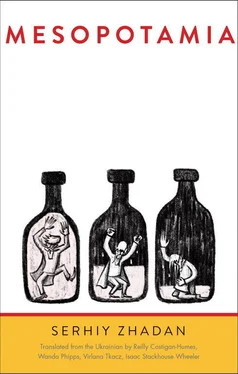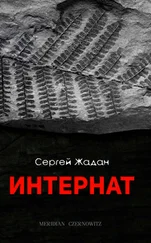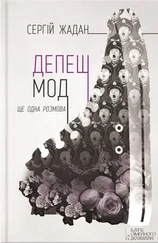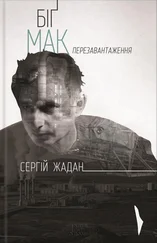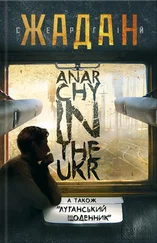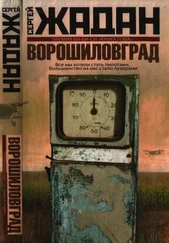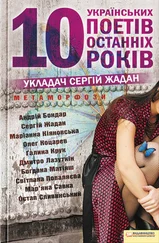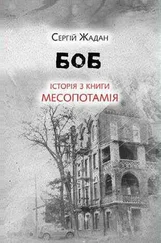“I got this for you,” Bob said. His classmate thanked him, catching a glimpse of Mount Ai-Petri.
“Oh,” he said, “that’s the first place I got the clap, in Yalta. I was there for training camp.”
“Should I take it back?” Bob asked, embarrassed.
“Nah, man. Oddly enough, I remember that trip quite fondly.”
“The faculty of memory,” Bob noted in one of his subsequent messages, “is capable of reconciling things that initially seem incompatible or mutually exclusive in terms of their logical content. Sometimes I think that our consciousness is built out of our most sorrowful and heart-wrenching stories and memories. The all-encompassing nature of memory and the irreversible experiences it contains are probably what drove humanity to invent sports, the arts, and anesthesia.”
His classmate walked him to the subway and then went about his business, holding the plate under his arm like a fallen halo. Bob took a train to the hallowed city of Philadelphia later that evening. Tracking down his relatives proved surprisingly easy—there were only two Koshkins in the phone book, his aunt Amalia and his uncle Sasha. Actually, his uncle was listed as Alex here in America, but Bob wasn’t about to let that stop him. He dialed their number and was greeted by a slightly shrill voice that turned out to belong to his cousin Lilith. Bob told her about the purpose of his visit and his place in the Koshkin family tree at great length, swallowing long strings of consonants and losing his train of thought. He sensed that his story lacked credibility, but he pressed on, appealing to their childhood memories and good old Koshkin hospitality.
“Yep,” he yelled into the phone, “you got it. I braved a Ukrainian Airlines flight and crusaded through all the duty-free zones! I haven’t eaten in two whole days! But I never doubted I’d find your family and hold you in my brotherly embrace once again!” Lilith gave him directions. She warned him that getting on the train without a ticket wouldn’t fly here in the States, and that they weren’t going to come bail him out if he got caught.
The Koshkins had settled in Philadelphia a long while ago and weren’t planning on moving back to Ukraine anytime soon. They’d picked up the language quickly, but they hadn’t forgotten their roots. Uncle Alex worked for a big food wholesaler. Aunt Amalia had been a teacher, though Bob wasn’t quite sure whether or not she was gainfully employed in America. Their sixteen-year-old daughter, Lilith, the family’s pride and joy, dreamed of being a dentist one day.
“Good for her, choosing a career based on a realistic assessment of her talents,” Bob wrote in one of his emails. “That’s why I’ve always dreamt of going to Brazil and becoming the queen of Carnival.” The Koshkins, an ethnically mixed family, had an odd lifestyle. They took a selective approach to adopting American customs. Despite the many years they had spent in this faraway land, they still celebrated all the Soviet and Orthodox holidays—in addition to the Jewish ones, of course. Easter and International Workers’ Day blended together smoothly. One year, Uncle Alex’s friends from some weird Hasidic anarchist group persuaded him to march in their parade. The Koshkins celebrated the Fourth of July, too, because they regarded it as a Jewish holiday, for some reason. Uncle Alex’s colleagues didn’t question his rationale; he was getting into the holiday spirit and that was good enough for them.
Bob’s unexpected visit caused much consternation in the Koshkin household. This alien from the East spooked his hosts; his thick sideburns and flashy shorts made them want to make doubly sure that he had a return ticket. Bob’s family back in Ukraine had severed all ties with their relatives overseas. Uncle Alex didn’t remember his older brother, Seva, Bob’s dad, very fondly. In fact, he remembered him as a complete prick, for several reasons. First, Bob’s dad was a Party member; second, he had a grating personality; and third, he hadn’t given Uncle Alex any of the money he made from selling their parents’ cottage. It seemed like Uncle Alex had buried that distant past a long time ago, only to have it turn up on his doorstep again. He just didn’t know how to react. At any rate, Uncle Alex decided to prepare his special pasta dish, and then the whole family gathered around the long dinner table and started looking through the pictures Bob had brought with him, where the young Koshkins, Seva and his little brother, were looking life straight in its suspicious eyes, their teeth flashing whitely in defiance at their indeterminate future. Seva was fit and self-assured, while Alex was chubby and effeminate. The old photographs clearly disgusted the latter.
“We were all victims of that totalitarian regime,” he said, pointing a yellowed fingernail at the black-and-white images. “Just look at that gut of mine.” The womenfolk examined Uncle Alex’s potbelly, saying he looked pretty well fed for a “victim.”
“What are you talking about?” Uncle Alex protested. “I was in good shape. I boxed for years. I broke my nose in two places. Look, the bridge is busted up, too.” The womenfolk took to Bob right away and excitedly kept the conversation going. The dry California wine did a number on Aunt Amalia, an ample, middle-aged woman. She was enthralled by the pictures dating back to the late seventies, all those scenes of picnics and beaches; she offered nasty commentary on the cast’s silly hairdos and outdated swimsuits. Naturally, Uncle Alex got the worst of it. Like any couple that had missed their chance at an amicable divorce, the two of them nagged each other incessantly. Aunt Amalia was really letting the luckless Uncle Alex have it, berating him for his pretense to a lifestyle he couldn’t afford. Uncle Alex could only take so much. She was about to finish him off for good, so somewhere between the pasta and the coconut cookies he excused himself, wishing his nephew sweet dreams and declaring resolutely that America, the cradle of democracy, would make a real man out of him, the kind of man who could be a worthy member of an open society—i.e., he wouldn’t repeat the mistakes of his nutjob father, Seva. Aunt Amalia suggested drinking to that. Lilith skooched over closer to Bob.
Bob found himself between two women—now he could relax. He had finally done what his father had asked him to do: he had restored balance to things, found the remnants of their family scattered across the world, gathered all the Koshkins together, and listened to the shared blood pumping through their veins. What is it that really ties a family together, after all? Remembering the deceased and procreating to secure your legacy.
“Speaking of procreating… ,” Bob thought to himself, furtively eyeing Lilith. She took after her mother—she had the same wide hips, the same hairdo, and the same bright red lips. Her mom was looking about as good as could be expected, considering her lifestyle. You could plainly see what the future held for Lilith. The next twenty years or so were going to take a serious toll on her.
“A lack of transparency makes it unclear how one should pursue upward mobility,” Bob speculated in one of his emails to his dad. “Faced with a lack of legitimate ways to climb the social ladder, we often resort to practices that are purely spiritual in nature, such as starting a family, joining a church, or even just daily meditation. Unfortunately, this journey usually ends in rehab.” Lilith sat by him for a whole hour after that, inching closer and closer until he could feel the fiery curve of her hips. She criticized the locals and their proclivities, commended Bob for having such strong convictions, and chewed bubble gum; the aroma of her oils and lotions nearly overpowered him.
“Boy, I’d like to get her into the sack,” Bob thought to himself, as he told them about his native city’s struggle with xenophobia and the problems of post-totalitarian life. “But she’s my cousin. What would others think about our relationship? Sleeping with your cousin may be frowned upon in the country of enduring democracy. That’s something people only do in the East. There’s something so hopelessly post-totalitarian about all this. Only we could think of doing something like that.” So he turned toward his Aunt Amalia, still feeling the heat emanating from his cousin’s nubile body and greedily inhaling the fragrant air through his nostrils. Meanwhile, Aunt Amalia was getting fired up, smoking her menthols and picking at the cold pasta like it was a dead patient lying on the operating table after a long and unsuccessful surgery. She told Bob about their family’s trials and tribulations, about their long years in exile, about having to ride in boxcars and ships’ holds, about transit zones, about having their clothes disinfected, about the scent of freedom, about equal opportunity, about squeezing the slave out of yourself, drop by drop, about enduring democracy as the foundation for inner peace, and about multiculturalism as the foundation for coexistence, even with black people.
Читать дальше
